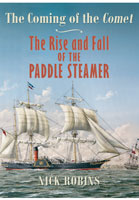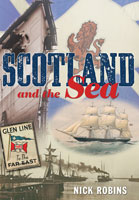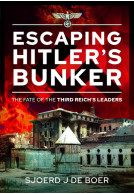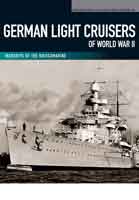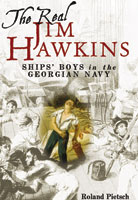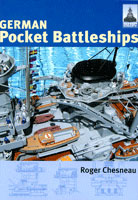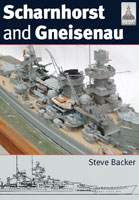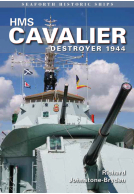From War to Peace (ePub)
The Conversion of Naval Vessels After Two World Wars

File Size: 13.4 MB (.epub)
ISBN: 9781399009591
Published: 22nd June 2021
| Other formats available | Price |
|---|---|
| From War to Peace Hardback Add to Basket | £18.75 |
From War to Peace tells the story of the adaptation from White Ensign to Red Ensign, and to flags of other nations, of the numerous classes of naval ships mainly built during the two world wars and surplus to requirements with the advent of peace. It also describes ships sourced from the United States Navy and elsewhere that were converted for commercial use.
The most successful classes to transfer to the merchant service were the Hunt-class minesweepers of the Great War, Landing Craft, Tank, the salvage tugs of World War Two, and the wooden-hulled Fairmile launches which became familiar at seaside resorts in the 1950s and ‘60s; and, of course, the MFV classes that helped the fishing industry in the postwar years. The story includes the successful commercial conversions of many of the Flower and Castle Class corvettes and River Class frigates, notably the 1954 conversion of HMCS Stormont to a luxury yacht for the Greek shipping magnate Onassis. It describes why HMS Charybdis became a passenger liner in the Great War, and how HMS Albatross nearly became a luxury liner after World War Two, but in fact was transformed into a very unpopular emigrant ship and ended her days as a floating casino based at Cape Town.
The author reveals the military antecedents of numerous commercial vessels that many would have thought were built especially for the service that they later maintained, and it illustrates just how many Royal Navy vessels ended up in private ownership. And the question is asked: if the military had not built so many ships that were eminently suitable for commercial adaptation, would the technical development of merchant shipping have progressed at a faster rate than it did? The answer is a definite ‘no’, and is illustrated in several ways. It was former naval vessels that promoted the early development of the Ro-Ro ferry; former naval ships introduced numerous design innovations, for example, the raised foredeck common for so many years on salvage tugs, and, above all, stripped of their military hardware, ex naval ships provided opportunities for modest investment where otherwise there would have been none.
Copiously illustrated throughout, the book tells a fascinating story of invention and ingenious ship conversion, and of pragmatic adaptation in the financially stringent years after two world wars.
"...From War to Peace, should have broad appeal to readers of naval and maritime history."
Nautical Research Journal Volume 68 (2023)
"the book is a well-researched, worthwhile and readable contribution to a hitherto fragmented subject."
Warship Annual - 2023
Robins’ book presents an enormous amount of detail in a readable narrative. Sufficient background is given on the wartime construction of the various ship types, as well as their post-war conversion and employment. The design lay-out is high quality in keeping with other Seaforth titles incorporating well chosen, illustrative photographs on glossy paper and several very useful tables. The book is primarily geared toward a general rather than specialist audience interested in warships and landing craft from the two world wars and telling some of their post-war fortunes after conversion.
The Northern Mariner/Le marin du nord
As featured on The Naval Review
The Naval Review
Nick Robins's text is even more valuable and is a highly recommended and worthy addition to any collection on maritime history.
Mariner's Mirror
Authors have thoroughly documented the stories of merchant vessels that were converted for wartime; the redundant navy ships that went the other way are less well known. Nick Robins sets the record straight in a book that includes the 19th century as well as the world wars. This thorough account covers cruisers turned to liners, minesweepers to ferries, military launches to private yachts, corvettes to whalecatchers, and many other surprising transformations. Technical descriptions are sometimes provided alongside the historical detail, and there are images on every page to illustrate the changes. Perhaps the industry could take inspiration from this book when approaching the current transition to cleaner maritime technology?
Nautilus Telegraph, May-June 2022
I read this book out of curiosity, having grown up near Portsmouth. How glad I am that I did. This fascinating subject is well covered both in terms in the range of types of vessels and the usages that they were put too. Whilst at times I did get a bit lost in some the technical terms and descriptions being used, this did not put me off finishing this book.
Western Front Association - Hampshire & Isle of Wight Branch
The copious pictures through out really show the diverse usages as well as the huge quantities of vessels both available and used. The author manages to walk that fine line that makes this book accessible to the casual/general interest reader such as myself but also appears to have enough technical details to be attractive to the specialist reader.
It is fascinating to trace the impact of the vast amount of military shipping being disposed of to the civilian market. The lives of some vessels was extended by their conversions so that they are still in service decades after the end of their military service.
Highly interesting and informative. Recommended.
Nick Robins has done something unusual and fresh with this book. The book is most certainly about naval vessels, but with a really interesting twist. As a result, it is a refreshing and intriguing book to read.
Australian Naval Institute
Recommended for ANI members.
Read the review here
This book looks at the next life of shipping vessels used in World War I & II, and it was amazing how many of these were able to have a second use and many of them in the leisure industry.
UK Historian
Read the full review here
Well illustrated with archive photos throughout, with not only some showing ships in their wartime form, but so many in their converted format of civilian service, and despite new superstructures, still clearly displaying their warship hulls. With the volume of surplus vessels after WW2 it is little wonder that they offered a cheaper alternative to building a new vessel from scratch and no doubt encouraged some commercial businesses to actually start up after the war. Fascinating reading and the photos add so much to show what happened to the many small ships that had seen so much suddenly found themselves out of a job as the war ended.
Military Model Scene
Read the full review here
Every ship has a tale to tell from the convoy escort duties of the Flower class and escort carriers before conversion back to peaceful tasking, to the Christina whose post war story is possibly more exciting than her wartime story. A fascinating story of how peacetime imagination enabled commercial shipping to successfully adapt warships after conflict.
Peter Wykeham-Martin, Warship World
About Nick Robins
NICK ROBINS, a geologist by profession, is acknowledged for setting maritime history within the bigger social and political picture. His books describe the evolution of a variety of shipping themes, ranging from tugs and tenders to excursion steamers and even cruise ships, recently covered in his The Cruise Ship: A Very British Institution.










